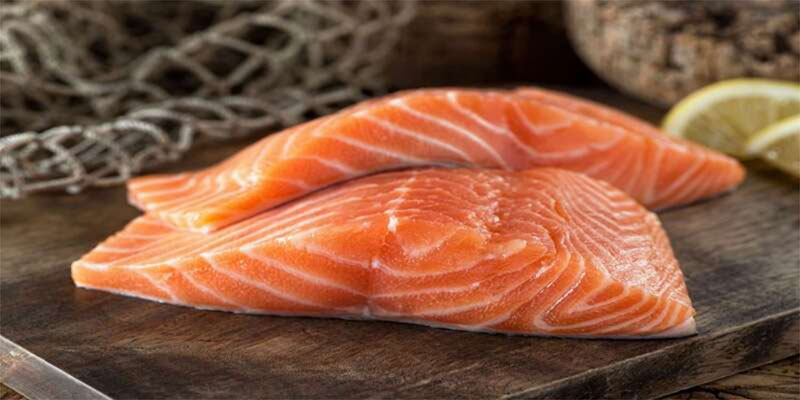Anxiety and tension may be alleviated by eating certain foods. Discover the top foods for alleviating stress, as recommended by dietitians. No one has time to make a meal plan when they have a ton of work due, plus a packed social schedule. The food you consume may directly impact how stressed you feel. Some meals have been shown to reduce fluctuations in blood sugar and, more importantly, elicit emotional reactions. Find 20 possible stress-relieving foods and the possible reasons they work here.
Green Leafy Vegetables
It's tempting to reach for a cheeseburger when you're feeling stressed, but a healthy lunch is the better option. This is to say, a lower incidence of depression was seen among those who consumed more of these nutrients. And in 2018, researchers found that when college students ate more fruits and vegetables, they had a more positive mood, greater energy, and less stress. According to the study's authors, healthy eating seemed to predict a pleasant mood the next day. However, what came first needs to be clarified: happy thoughts or good eating habits.
Seaweed

Good news for sushi fans: we have much to offer. Your hot tuna roll's seaweed wrapper may help you relax, too. According to Health's contributing nutrition editor Cynthia Sass, MPH, RD, seaweed is high in iodine and a good mineral source. The National Institutes of Health report that seaweed is one of the best food sources of iodine. According to Sass, "too little iodine may produce weariness and sadness," yet a quarter cup of seaweed salad can provide more than 275% of the daily amount.
Avocado
Eating avocado daily may reduce stress by making you feel full and content. Half an avocado added to meals in a 2014 study published in Nutrient Journal decreased participants' appetite by 40% in the three hours after lunch. After consuming the avocado, the subjects reported feeling full for three hours with less hunger.
Beets
Folate, abundant in beets, has been linked to reduced stress levels. Sass claims that eating only one cup of beets daily would give you more than 30% of your recommended daily folate intake. Forgetfulness, disorientation, and inability to sleep have all been linked to low folate levels, as has tiredness of the mind, according to Sass. Folate depletion is a side effect of numerous commonly used medicines, including statins (to decrease cholesterol), NSAIDs (to reduce inflammation), diabetic treatments, and birth control pills.
Blueberries
Blueberries are often considered a superfood due to their high nutritional and antioxidant content. "When you're stressed, there's a struggle being waged inside of you," Mangieri said. To better deal with stress, your body may use the support of the antioxidants and phytonutrients present in berries. Natural killer cells, "a kind of white blood cell that plays a fundamental function in immunity, important for fighting stress," were proven to increase in persons who ate blueberries, according to the research cited by Sass.
Oranges
There is enough vitamin C in a single medium-sized naval orange to satisfy more than half of the daily value set by the National Institutes of Health (NIH). According to research published in the Journal of Thoracic Disease in 2020, vitamin C has been shown to contribute to the body's stress response. According to Sass, "this essential mineral helps lower levels of the stress hormone cortisol, which may wreak havoc on the body" and "supports immunological function, which can be compromised by stress." Fatigue, mental fog, increased hunger, and weight gain (especially belly fat) are some side consequences of chronically elevated cortisol levels.
Oysters
In addition to their reputation as aphrodisiacs, oysters' high zinc concentration is a tasty perk. The National Institutes of Health reports that oysters have the highest zinc content of any food. Per serving (six raw oysters), you'll receive 32 milligrams (mg) of zinc or 400% of the RDI. Zinc "may reduce the body's reaction to stress," nutritionist Keri Gans, RD, told Health. As an antioxidant, it may help the body respond less strongly to stress and anxiety, reduce inflammation, and boost the immune system.
Salmon

Some research suggests that stress can increase the body's production of the anti-anxiety hormones adrenaline and cortisol. Salmon's omega-3 fatty acids offer anti-inflammatory characteristics, says RD, Lisa Cimperman, senior scientific and medical liaison at Albireo Pharma. This may help mitigate the negative effects of chronic stress. A study released in Molecular Psychology in 2021 found that omega-3 fatty acids reduced cortisol levels by up to 33% when compared to a placebo.
Conclusion
Studies have shown that stress increases the body's need for minerals such as vitamins B and C, selenium, magnesium, etc. You may be able to control your stress with nothing more than a diet high in certain nutrients.




